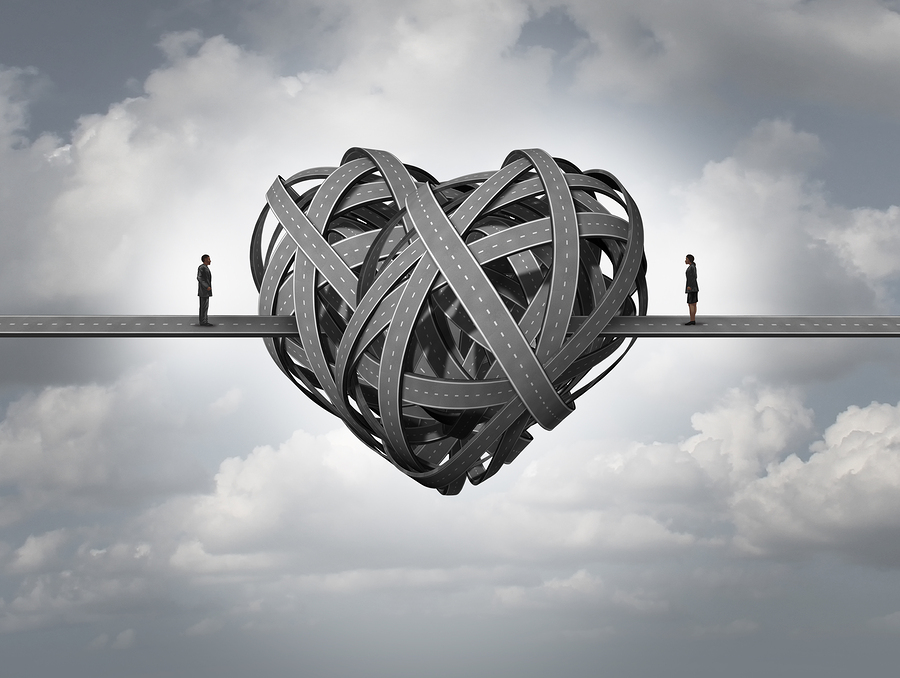“When people show you who they are, believe them the first time” – Maya Angelou
English Poet Alexander Pope wrote in his Essay on Criticism, “to err is human, to forgive is divine”.
Few things feel more heavenly then when someone really “gets” how they’ve hurt you. It’s easy to forgive them when they honestly apologize, make amends, and genuinely do things differently because they’ve learned the error of their way(s). Sometimes however, this doesn’t happen. Sometimes, behavioral patterns repeat, promises get made that aren’t kept, and sometimes, the one that did the hurting actually denies doing what they did.
It’s devastating when someone you love deeply, lets you down, betrays you, leaves you, or hurts you in unspeakable ways. What complicates the pain more is this idea that you have to “forgive” that person, let go of your anger, grudges, and resentment, so that you can take the high road and move on in your life.
What if there’s wisdom to your pain and that working so hard to forgive someone might actually keep you from hearing what that wisdom is?
What if your anger, hurt, and resentment, helps you to get the space you need from that person, so that you can begin to heal yourself? And, while in your process of healing, what if you then start to understand somethings, possibly even many things about you, that you never knew? Perhaps you gain insight into why you chose that person, and or made some of the choices you made in that relationship, including the oh so common choice to ignore the little red flags you saw early on because, well, you liked how you felt when you were with them, and no one’s perfect, right? What if your pain inadvertently offered you an opportunity to learn something so important about yourself that it would empower you to move forward and engage in relationships in a different way- one that doesn’t make excuses for another’s behavior and stays true to you?
Much has been written about forgiveness and the importance of learning to accept things as they are and let go. Much has been said about not allowing people who have hurt you to take up too much space in your head because that gives them power over you.
All of that is true.
But I don’t think that means forgiving them, especially if they haven’t proven themselves worthy of your forgiveness.
I often find in my clinical work, that the reason people struggle with trying to forgive the one who hurt them, is because it feels inauthentic. What feels authentic is the painful double bind they find themselves in. On the one hand, they want to forgive the one who hurt them because they still have some hope that things might somehow workout. Jumping quickly to forgiveness in this way acts as a defense mechanism, protecting people from taking in the awfulness of what the other did and the pain of the loss. On the other hand, the awfulness may be unacceptable and admitting that to oneself means there will be no reconciliation. It’s an impossible dilemma, where people feel damned if they do and damned if they don’t. This bind however, actually has an underlying positive intention, because it acts as a way to slowly remove the Band-Aid and mitigate the overwhelming pain people finds themselves in.
Sometimes, I encourage people to take a few steps back and metaphorically “un-forgive ” the one who hurt them. This allows them to really process through the pain that scarred their soul. When they take this step back, they then come to understand that’s it’s normal to find themselves cycling through the memories of what happened and the wishing and wanting of what could have been. When people really take the time to proactively heal their wounds, grieve their losses, and learn their life lessons; their lives begin to transform. The void and loss of the other creates the vacuum that draws in new people and situations that are better suited for them and their new phase of life. They begin to become the person they were meant to be. Then, the person who once hurt them so terribly, doesn’t matter so much anymore. The winter of their obsessing, resentment, anger, and discontent, begins to melt away into a new season in their life; one with renewed hope and promise.
This happens, not because they forgave the one who hurt them, though through this process they may genuinely decide to do that.
It happens, because they stayed true to their process and in turn forgave themselves.


